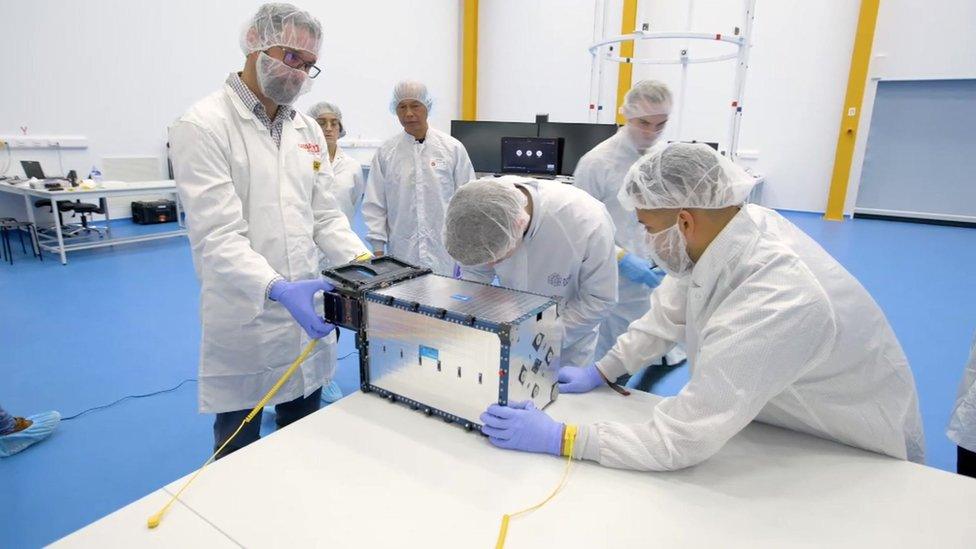Spaceport could mark start of new era in Norfolk, says firm
- Published

Rob Adlard, chief executive of Gravitilab, said the opportunities for Norfolk were "immense"
An aerospace research company which is bidding to create an offshore spacesport has said opportunities for the UK space industry are "immense".
Gravitilab wants to build a vertical launchpad on a floating barge about 10km (6.2 miles) off the Norfolk coast.
The company is supporting and working with the Spaceport Cornwall programme, which this month was granted an operating licence to launch satellites.
It has applied to the UK Space Agency for funding for a feasibility study.
Technical director and chief executive Rob Adlard said the opportunity was "absolutely immense" for Norfolk.
The company, based in Coltishall, makes rockets and drones used to carry out tests in microgravity and supports the Spaceport Cornwall programme, which has been granted an operating licence to launch satellites.
Gravitilab is now in the process of gaining licensing for airspace from the Civil Aviation Authority (CAA).
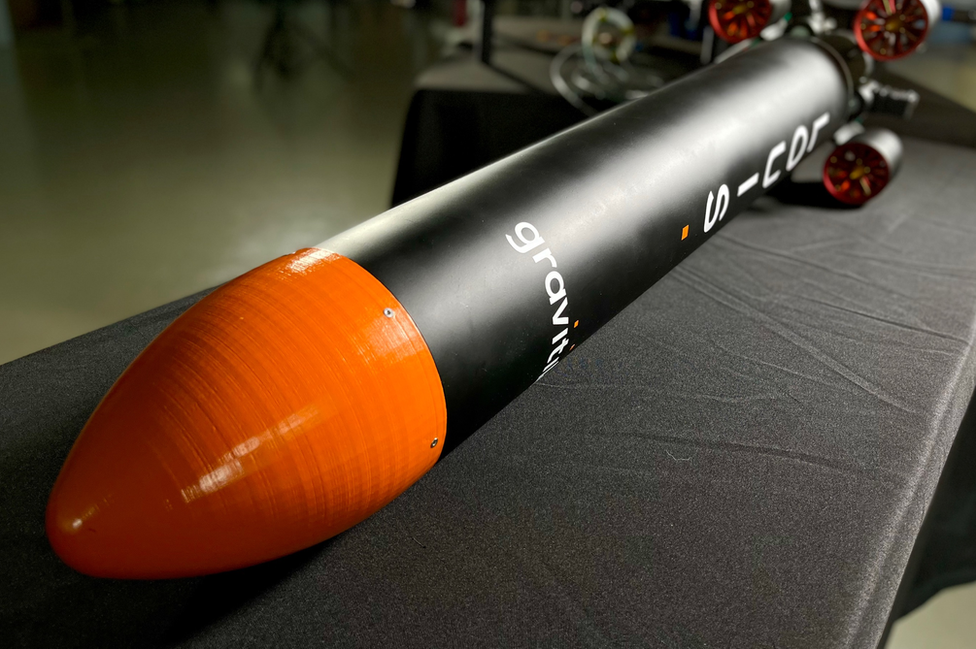
A scale model of the rockets Gravitilab hopes to launch to support UK space research
It would launch sub-orbital rockets and drones which would collect data to monitor climate change and coastal erosion in a way that cannot be done on the ground.
"There's a huge opportunity for Norfolk to be world leaders in space technology," Mr Adlard said.
"There's enormous potential, there is no reason why we shouldn't be leading space technology as well," he added.
"Who knows what the future will hold for Norfolk - we really don't know what the limits are.
Mr Adlard said the county was already home to "amazing" science research institutes, including the University of East Anglia and the John Innes Centre, which, he said, set it in good stead.
It is yet to receive any national or regional funding, although Spaceport Cornwall secured £12m of council funding for its Virgin Orbit satellite launch system.
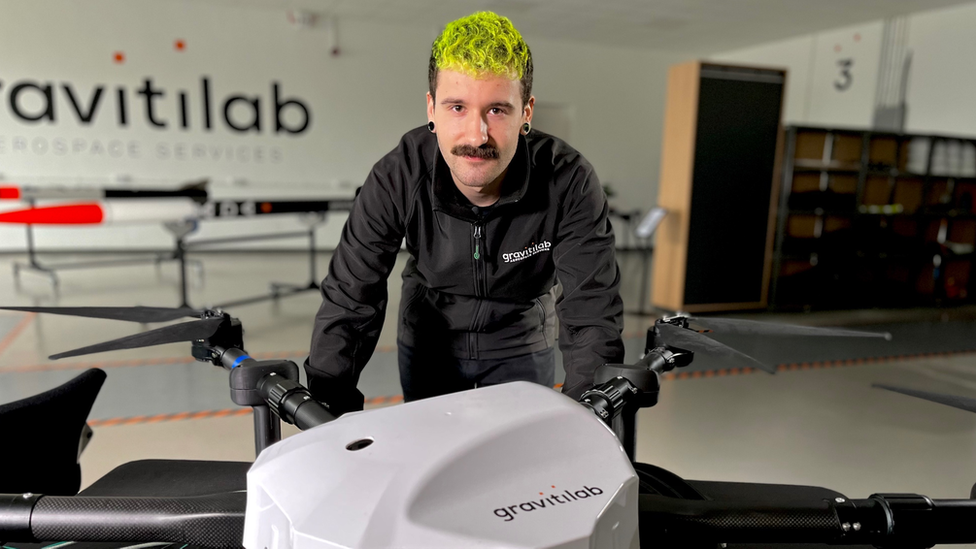
Drone specialist Curtis Reed said the devices could collect data and carry out tests in microgravity
Matt Archer, commercial spaceflight director at the UK Space Agency, said developments in Cornwall had made it "an exciting year for the thriving UK space sector".
"The UK sector is well-established and globally respected, employing 47,000 people and generating an annual income, external of £16.5bn," he said.
"Looking ahead to next year and beyond, we have bold ambitions to continue growing by catalysing investment, delivering missions and capabilities and championing space."
Mr Adlard said Gravitilab's proposal was "quite distinct from the other spaceport options," and added other sites could not support rockets or be so remotely located.
"Our site would be the only one in England and within a couple of hours travel of the bulk of the UK space sector, so the benefits in terms of sustainability and logistical ease are clear," he said.
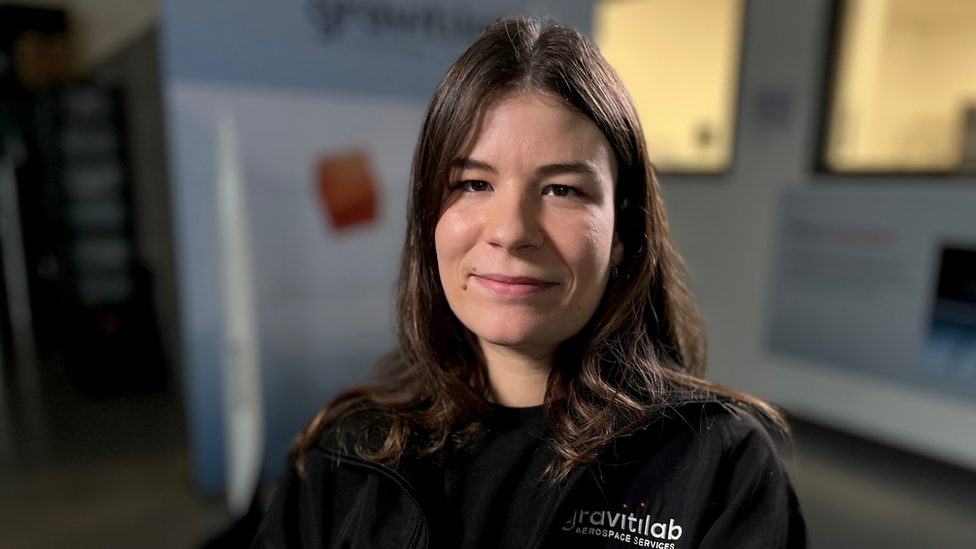
Safety engineer Laurène Armer said the programme was just the start of a new space era
Launch systems safety engineer Laurène Armer said the project was on a much smaller scale than anything NASA would carry out.
"We're going to be 10km (6.2 miles) away from the coast and we are flying sub-orbital rockets, so it's not the same impact at all," she said.
"It's just going to be the beginning of a new space era here in the region."
A Norfolk County Council spokesman said: "We heard about the ambitions to build a rocket launch pad in the North Sea off the Norfolk coast; this is still at concept stage but has progressed through viability into stage two of the very long process.
"As a council, we are proud to support all kinds of innovation to further develop and improve our county."

Find BBC News: East of England on Facebook, external, Instagram, external and Twitter, external. If you have a story suggestion email eastofenglandnews@bbc.co.uk, external
- Published21 November 2022
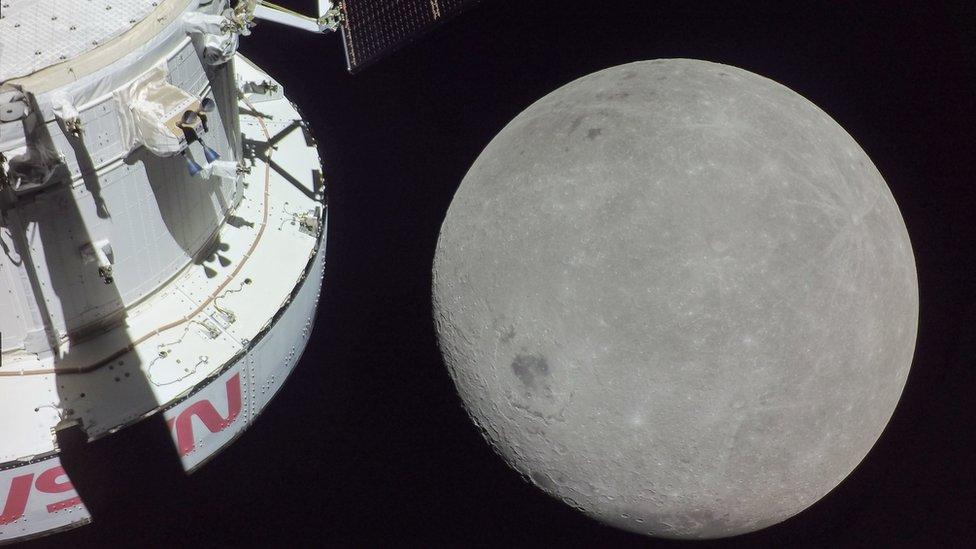
- Published16 November 2022
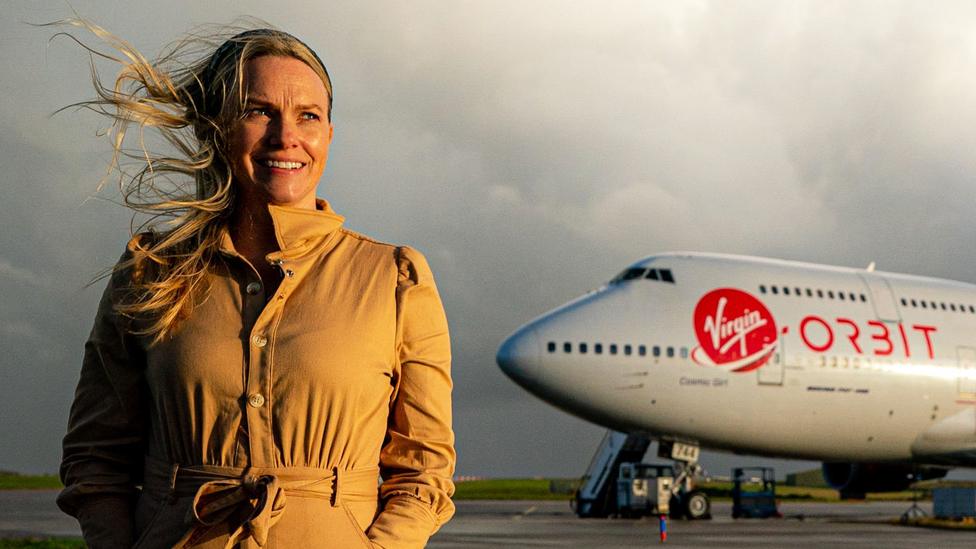
- Published8 November 2022
- Published24 October 2022
